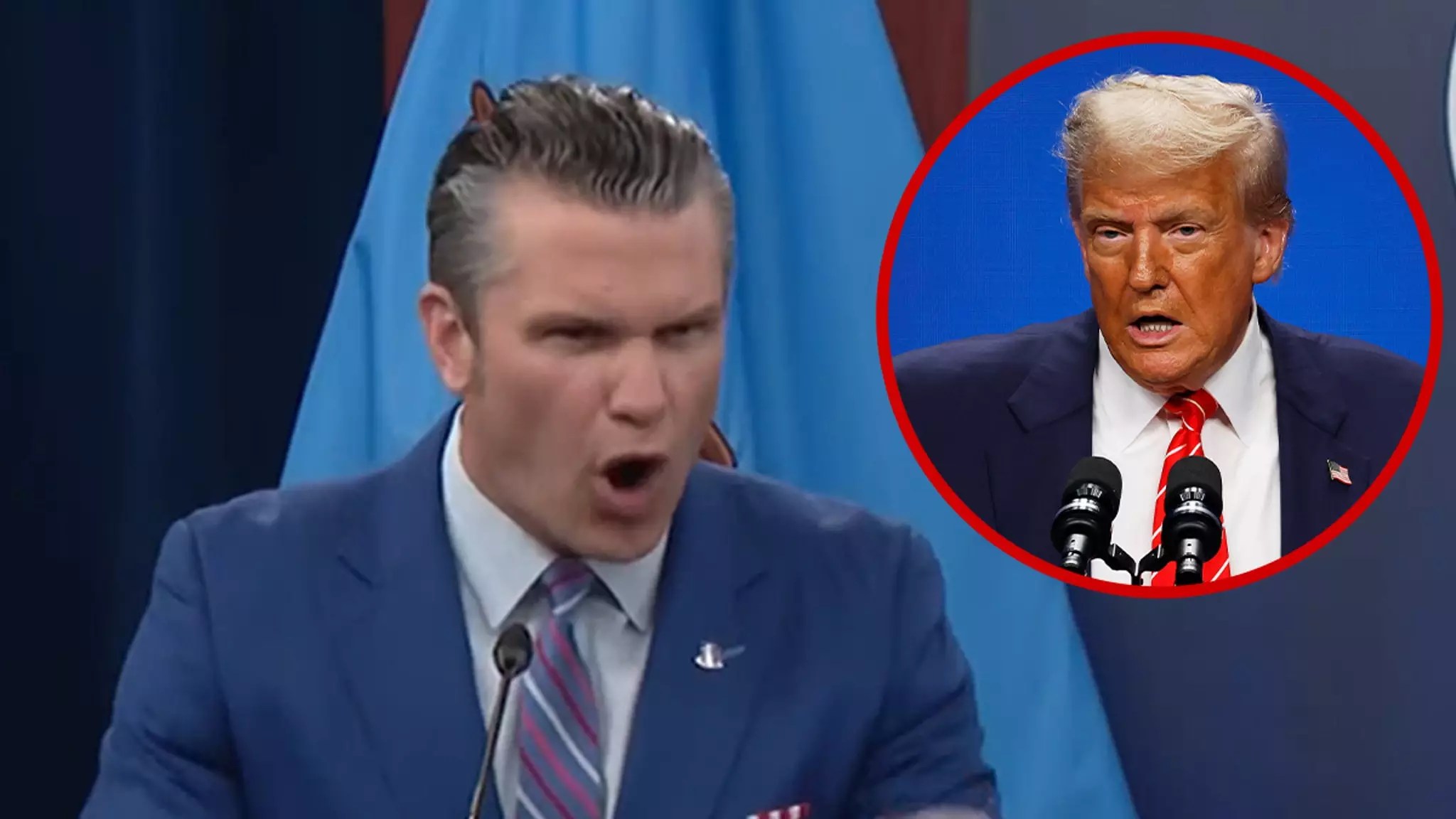In an environment marked by fierce political polarization, the relationship between the media and the government is frequently contentious. Recent comments from Secretary of Defense Pete Hegseth exemplify this dynamic as he fiercely criticized journalists for their scrutiny of the Trump administration’s military actions, particularly regarding recent operations in Iran. His remarks suggest a troubling trend where patriotism is invoked as a shield against legitimate journalistic inquiry, raising significant concerns about accountability in government actions.
Hegseth’s pointed claims that the media harbors a disdain for President Trump and seeks to undermine his administration’s narrative hold profound implications. By suggesting that negative media coverage equates to un-American behavior, Hegseth attempts to shift the focus away from the implications of military actions and onto the perceived failings of the press. This strategy not only undermines journalistic integrity but also erodes public trust in the media as an independent watchdog that is critical to democracy.
The Narrative of Patriotism
The Secretary’s defense of military operations by framing dissent as an affront to the troops raises numerous ethical concerns. His viewpoint hinges on the idea that respect for military personnel should preclude critical examination of the government’s war decisions. However, to regard media scrutiny as an attack on the armed forces is fundamentally misguided. Journalists have a responsibility to uncover the truth, contextualize military actions, and hold leaders accountable for the consequences of their decisions.
Hegseth’s insistence that the press should elevate stories about military success serves to sanitize the complex realities of war. While acknowledging the bravery of troops is essential, it must not come at the expense of exploring the broader consequences of military engagement. Honoring service members involves recognizing their role within the larger tapestry of governance, rather than using them as a political prop to stifle dissent.
The Gender Dynamics at Play
The dialogue took an unexpected turn when a journalist prompted Hegseth with a question regarding a female pilot’s contributions. His aggressive response suggested an unwillingness to engage with gender dynamics, revealing a broader reluctance to discuss inclusion within military narratives. By dismissing the question as a ploy to undermine military praises, Hegseth inadvertently highlights the conflict between acknowledging women’s representation in the armed forces and promoting a singular narrative of military success.
Addressing gender within the context of military operations could help reshape public perceptions, but it requires a departure from the often-monolithic portrayals propagated by administration officials. Hegseth’s reaction serves to further entrench stereotypes while stifling valuable conversations about diversity and representation in contemporary warfare.
Media’s Role in Democracy
The press’s role is critical in upholding democratic principles, particularly during tumultuous times such as these. The media must balance the reporting of military achievements with the analysis of strategic decisions to ensure that the complexities of international relations are communicated effectively. Hegseth’s confrontation with journalists is indicative of a broader struggle where emotional appeals to nationalism clash with the principles of free expression, illuminating a fraught yet essential battle for the soul of American democracy.
As the Trump administration continues to navigate perilous global dynamics, the media’s vigilance and commitment to truth remain paramount. Stripping away the layers of politically charged rhetoric is essential to decipher the motivations behind military actions and uphold the standards of accountability that are hallmarks of a healthy democratic society.


Leave a Reply